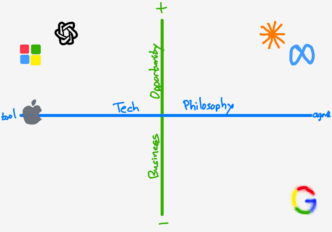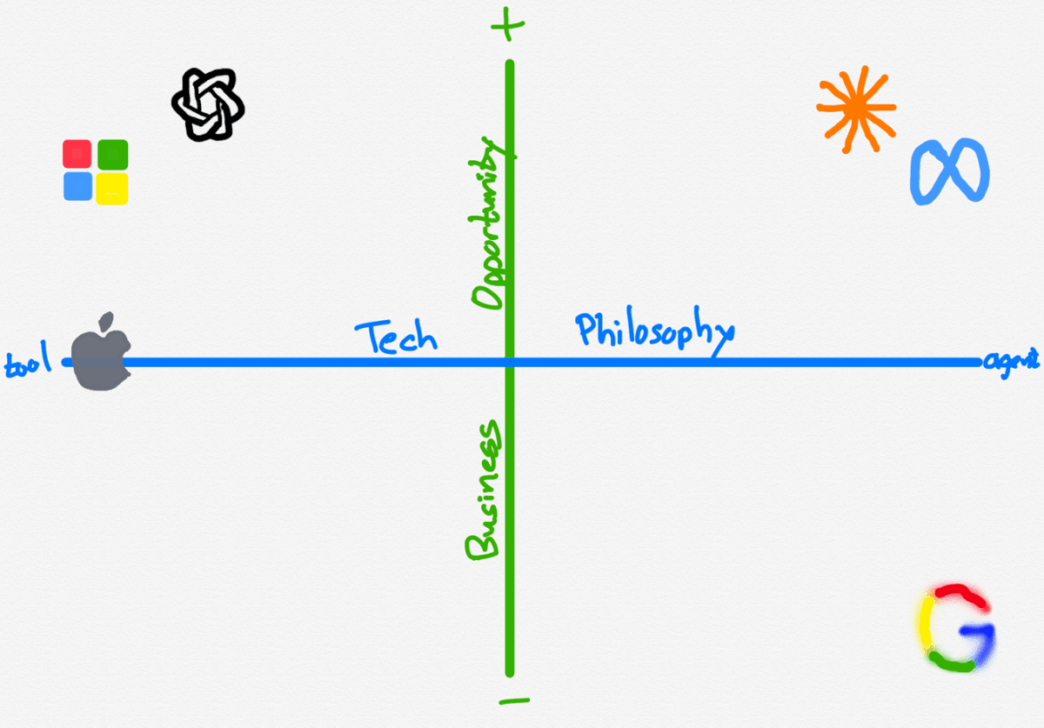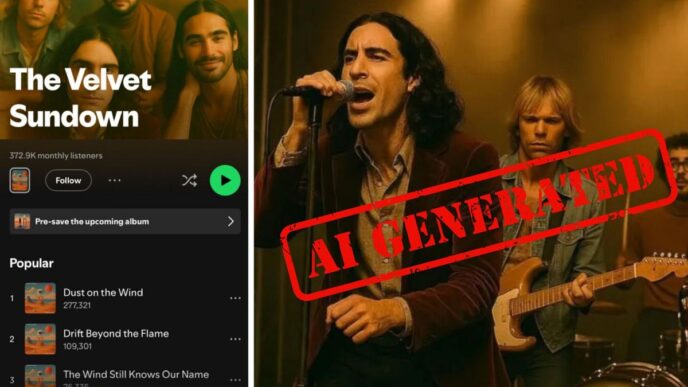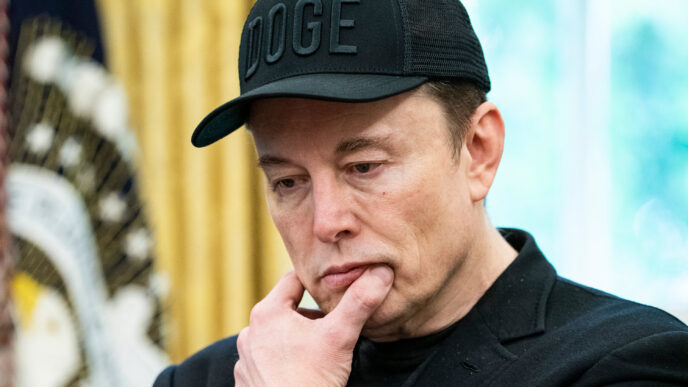Apple is losing top AI talent to Meta, highlighting growing cracks in its AI strategy. Ruoming Pang, head of Apple’s foundation models team, is jumping ship to Meta’s AI superintelligence group. Meta lured Pang with a package worth tens of millions per year.
Meta is aggressively hiring AI leaders from OpenAI, Anthropic, and Scale AI as CEO Mark Zuckerberg pushes hard to dominate. Apple’s AI efforts are slowing after earlier conservatism on buying GPUs forced slower AI model training, Bloomberg reports.
Apple Inc.’s top executive in charge of artificial intelligence models is leaving for Meta Platforms Inc., another setback in the iPhone maker’s struggling AI efforts. Ruoming Pang, a distinguished engineer and manager in charge of the company’s Apple foundation models team, is departing, according to people with knowledge of the matter. Pang, who joined Apple from Alphabet Inc. in 2021, is the latest big hire for Meta’s new superintelligence group, said the people, who declined to be named discussing unannounced personnel moves.
To secure Pang, Meta offered a package worth tens of millions of dollars per year, the people said. Meta Chief Executive Officer Mark Zuckerberg has been on a hiring spree, bringing on major AI leaders including Scale AI’s Alexandr Wang, startup founder Daniel Gross and former GitHub CEO Nat Friedman with high compensation. Meta has also hired Yuanzhi Li, a researcher from OpenAI, and Anton Bakhtin, who worked on Claude at Anthropic PBC, according to other people with knowledge of the matter. Last month, it hired a slew of other OpenAI researchers. Meta, later on Monday, confirmed it is hiring Pang. Apple, Pang, OpenAI and Anthropic didn’t respond to requests for comment.
Apple’s chip-buying cautiousness under CFO Luca Maestri meant it missed out on GPU supply that rivals Amazon and Microsoft snapped up.
Former Chief Financial Officer Luca Maestri’s conservative stance on buying GPUs, the specialized circuits essential to AI, hasn’t aged well either. Under Cook, Apple has used its market dominance and cash hoard to shape global supply chains for everything from semiconductors to the glass for smartphone screens. But demand for GPUs ended up overwhelming supply, and the company’s decision to buy them slowly — which was in line with its usual practice for emerging technologies it isn’t fully sold on — ended up backfiring. Apple watched as rivals such as Amazon and Microsoft Corp. bought much of the world’s supply. Fewer GPUs meant Apple’s AI models were trained all the more slowly. “You can’t magically summon up more GPUs when the competitors have already snapped them all up,” says someone on the AI team.
Apple’s AI approach fits its “tools not replacements” philosophy. AI here is about enhancing iPhone apps, not radical shifts.
Meta’s is “computers doing things for you.” That worldview powers its AI hiring blitz and major bet on AI-driven content and user experiences. It also explains why Meta is scooping up AI engineers Apple can’t or won’t pay for.
The divide between Apple, Meta, Google, Microsoft, OpenAI, and Anthropic maps onto different AI business philosophies and bets. Apple bets on AI as a tool for users via powerful devices. Meta and Anthropic chase AI agents that replace tasks and workers, aiming at big business efficiency gains. Meanwhile, OpenAI dominates consumer AI but competes uneasily with Microsoft in enterprise.
Google’s AI push is shaped by its quest for “I’m Feeling Lucky”: the aim is perfect answers, which conflicts with its core ad business relying on search-result clicks.
This is a welcome shift for Google the technology; from the beginning the search engine has included an “I’m Feeling Lucky” button, so confident was Google founder Larry Page that the search engine could deliver you the exact result you wanted, and while yesterday’s Google Assistant demos were canned, the results, particularly when it came to contextual awareness, were far more impressive than the other assistants on the market. More broadly, few dispute that Google is a clear leader when it comes to the artificial intelligence and machine learning that underlie their assistant.
Google has a business-model problem: the “I’m Feeling Lucky” button guaranteed that the search in question would not make Google any money. After all, if a user doesn’t have to choose from search results, said user also doesn’t have the opportunity to click an ad, thus choosing the winner of the competition Google created between its advertisers for user attention. Google Assistant has the exact same problem: where do the ads go?
OpenAI and Microsoft struggle with adoption’s change management. ChatGPT leads consumer AI, but Microsoft tries pushing Copilot in enterprises where employee buy-in is key and tricky.
OpenAI’s nascent strength in the enterprise market is giving its partner and biggest investor indigestion. Microsoft salespeople describe being caught flatfooted at a time when they’re under pressure to get Copilot into as many customers’ hands as possible. The behind-the-scenes dogfight is complicating an already fraught relationship between Microsoft and OpenAI…It’s unclear whether OpenAI’s momentum with corporations will continue, but the company recently said it has 3 million paying business users, a 50% jump from just a few months earlier. A Microsoft spokesperson said Copilot is used by 70% of the Fortune 500 and paid users have tripled compared with this time last year…
Anthropic targets AI agents that fully replace tasks, aiming directly at bottom-line impact – no reliance on employee adoption required.
This, by extension, means that Anthropic’s goal is what I wrote about in last fall’s Enterprise Philosophy and the First Wave of AI:
Computing didn’t start with the personal computer, but rather with the replacement of the back office. Or, to put it in rather more dire terms, the initial value in computing wasn’t created by helping Boomers do their job more efficiently, but rather by replacing entire swathes of them completely…Agents aren’t copilots; they are replacements. They do work in place of humans — think call centers and the like, to start — and they have all of the advantages of software: always available, and scalable up-and-down with demand…
Benioff isn’t talking about making employees more productive, but rather companies; the verb that applies to employees is “augmented”, which sounds much nicer than “replaced”; the ultimate goal is stated as well: business results. That right there is tech’s third philosophy: improving the bottom line for large enterprises.
Notice how well this framing applies to the mainframe wave of computing: accounting and ERP software made companies more productive and drove positive business results; the employees that were “augmented” were managers who got far more accurate reports much more quickly, while the employees who used to do that work were replaced. Critically, the decision about whether or not to make this change did not depend on rank-and-file employees changing how they worked, but for executives to decide to take the plunge.
Meta and Anthropic occupy the same high-impact spot aiming at full AI-powered replacements for work, while Apple sticks to cautious toolmaking and Google wrestles with its conflicting business model.
Meta’s hiring spree and Apple’s AI woes reveal who’s betting on AI power vs. restraint in this next tech era.














